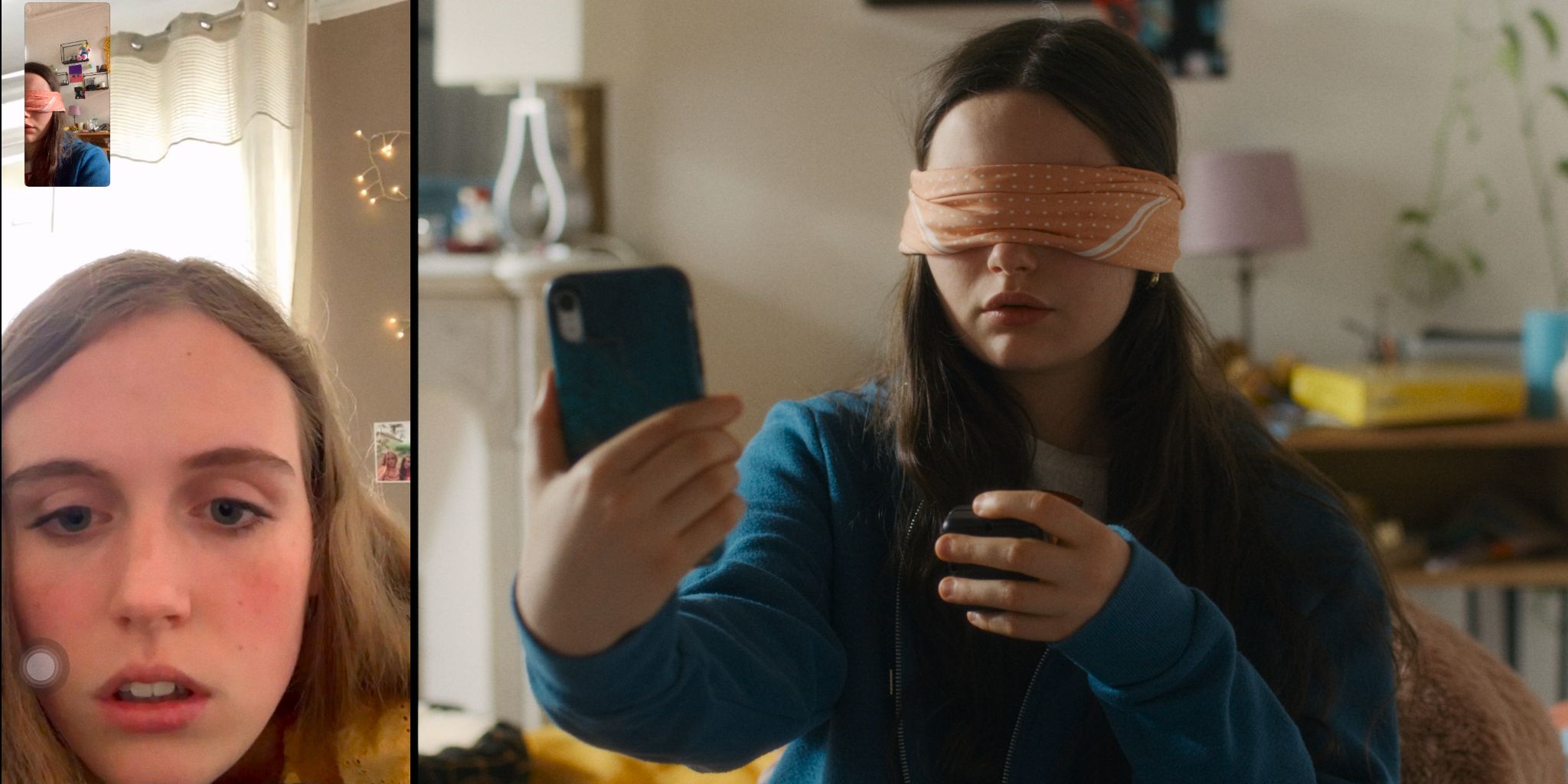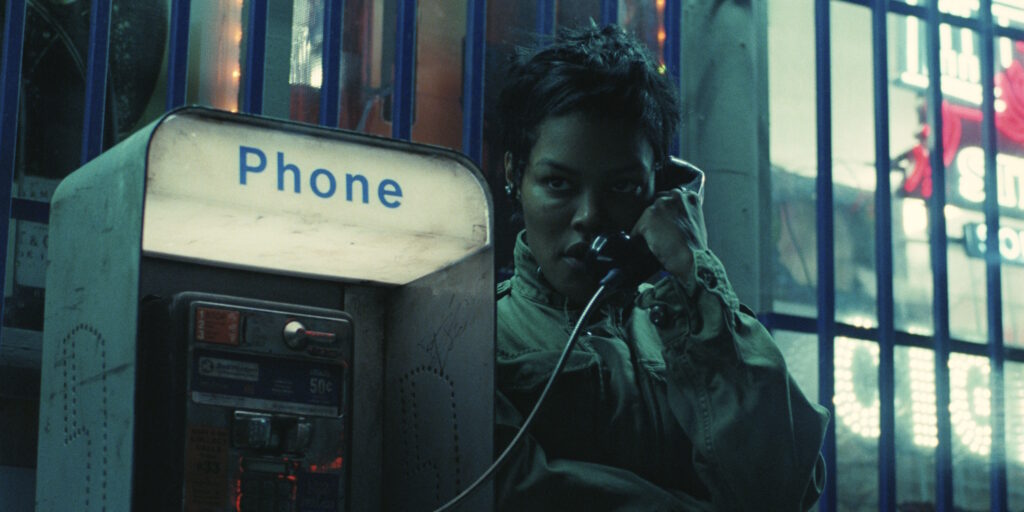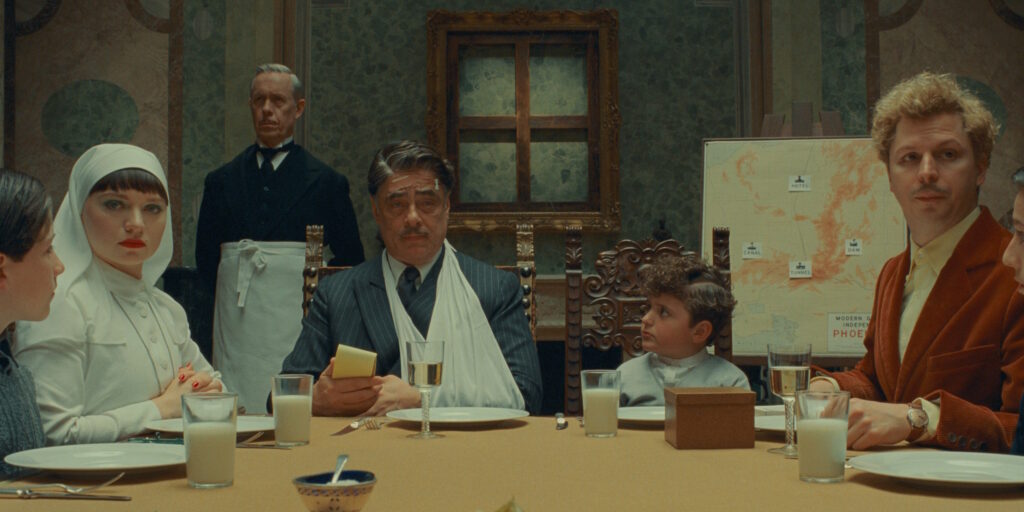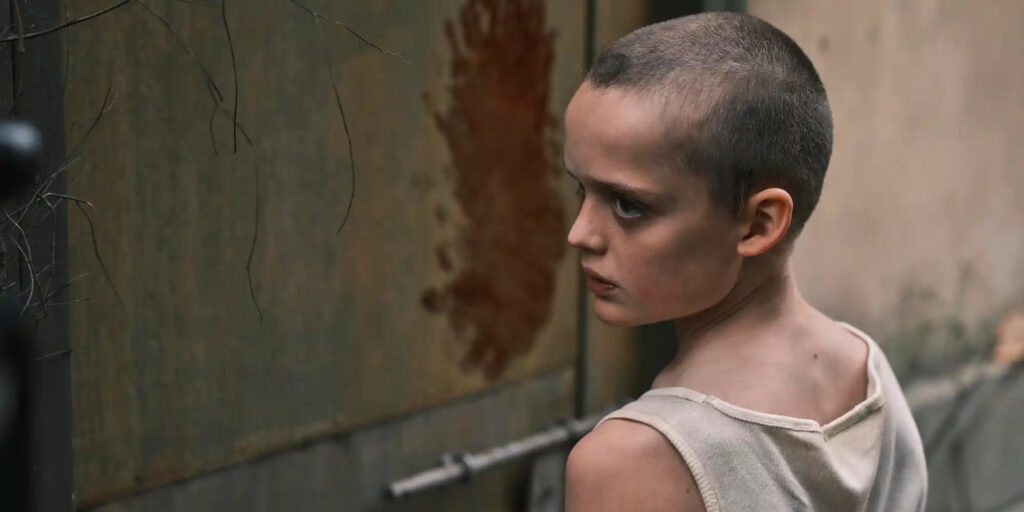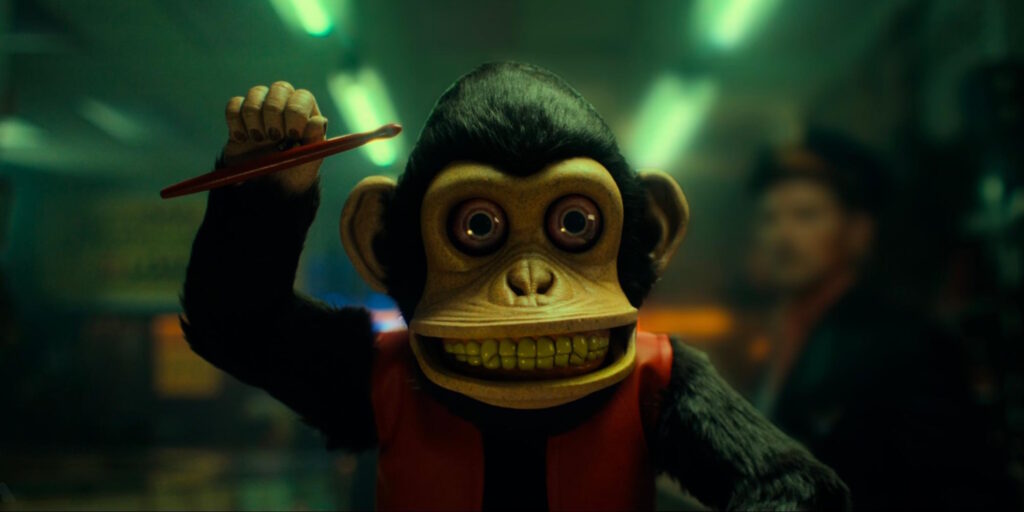What’s going on? Genuinely asking. What in the world is happening right now? What has been going on for the last — oh, geez, let’s say — decade or so? The last several years specifically? From 2020 onward? Narrowing it down further doesn’t elucidate a thing. Can anyone even pretend to know? Asking feels beyond futile when the answer is obviously a resounding, “No earthly idea.” The inverse is also true: Attempting to formulate an all-encompassing answer might be even more pointless than the question itself. Perhaps this is why Bertrand Bonello’s Coma makes for such a remarkable portrait of the ’20s. It simply dares to exist in the here, the now, the going on, fighting the insatiable desire for answers until we understand the question.
Coma’s setup is simple enough. An unnamed teenage girl (Louise Labèque), mandated to stay indoors in response to a global crisis unfolding outside, becomes infatuated with a YouTuber by the name of Patricia Coma (Julia Faure). Patricia’s videos — and her frequent plugs for a little Simon Says-ish device called a Revelator — have a hypnotic, dream-like quality that soon starts to bleed into the teen’s dreams. As she roams through a wooded purgatorial realm called the Free Zone, these visions of the subconscious begin to feel more real than waking life itself.
Though mainly live-action, what unfolds is peppered with 2D animated sequences, stop-motion soaps starring Barbie dolls, full-screen excerpts from Patricia’s trance-triggering videos, and a spattering of other jarring stylistic and formal departures. The purpose? To insert the viewer in the experience of the protagonist, re-creating the feeling of nonstop distractions from hours of desensitizing screen time. There’s an entire generation that has had a tablet in hand since the day they grew strong enough to grasp it, all day, every day. It’s a phenomenon Bonello likely observed (and, by extension, enabled) firsthand, given that the film is dedicated to his own teen daughter.
Without explicitly being about Covid-19, Coma is undoubtedly concerned with it. The girl and her friends hang out exclusively over FaceTime, empty streets sit surveilled by unseen foreign entities, Patricia’s videos reference both staggering population losses and the need to stay inside. It’s dialed into the heat of that moment, but it’s also vague enough to remain enjoyable outside of it. (Something that can’t exactly be said for all Covid-era projects, many of which felt dated on arrival.)
Bonello expertly evokes a dreadful sense of uncertainty and pairs it with a healthy dose of absurdity: the two unshakable feelings that pervade through our past, present, and future. However, to its credit, Coma is not some big shrug at the coalescing phenomena of vloggers, online fandoms, Zoomers raised by iPads, true-crime obsessives, the 2016 and 2020 (and, now, 2024) election cycles, global crises, internet-induced brain rot, and everything else that defines this blip in time. It’s in service of the larger point.
It’s all imbued with the same foggy feeling of hope that many cling to strictly for sanity’s sake: That something better must be coming, because wouldn’t it be awful if all of this heart-rending tragedy, chest-tightening turmoil, and mind-numbing stupidity were for nothing? In this way, Coma shares a lot in common with Bonello’s subsequent film, The Beast (2023) (which — paradoxically — might also be his previous film for some audiences, depending on their regional release calendars). Both attempt to make sense of it all by calling a spade a spade, emphasizing how nonsensical this nonsense truly is.
A loose adaptation of Henry James’s novella The Beast in the Jungle, Bonello’s other film in this dyad explores that general sense of unease that permeates throughout our present to its greatest extent. When paired with Coma, it’s clear Bonello has a firm grasp on the peculiarity of our current reality. By refusing to interrogate what might have brought on this current social-political-economic-environmental climate we’re living in (or delve into what it all means), Coma has more to say about where we are and more hopefulness for where we’re headed than just about anything else of its caliber.
Coma screens nightly at 7:30 p.m. on July 19 – 21 at the Webster University Film Series.
